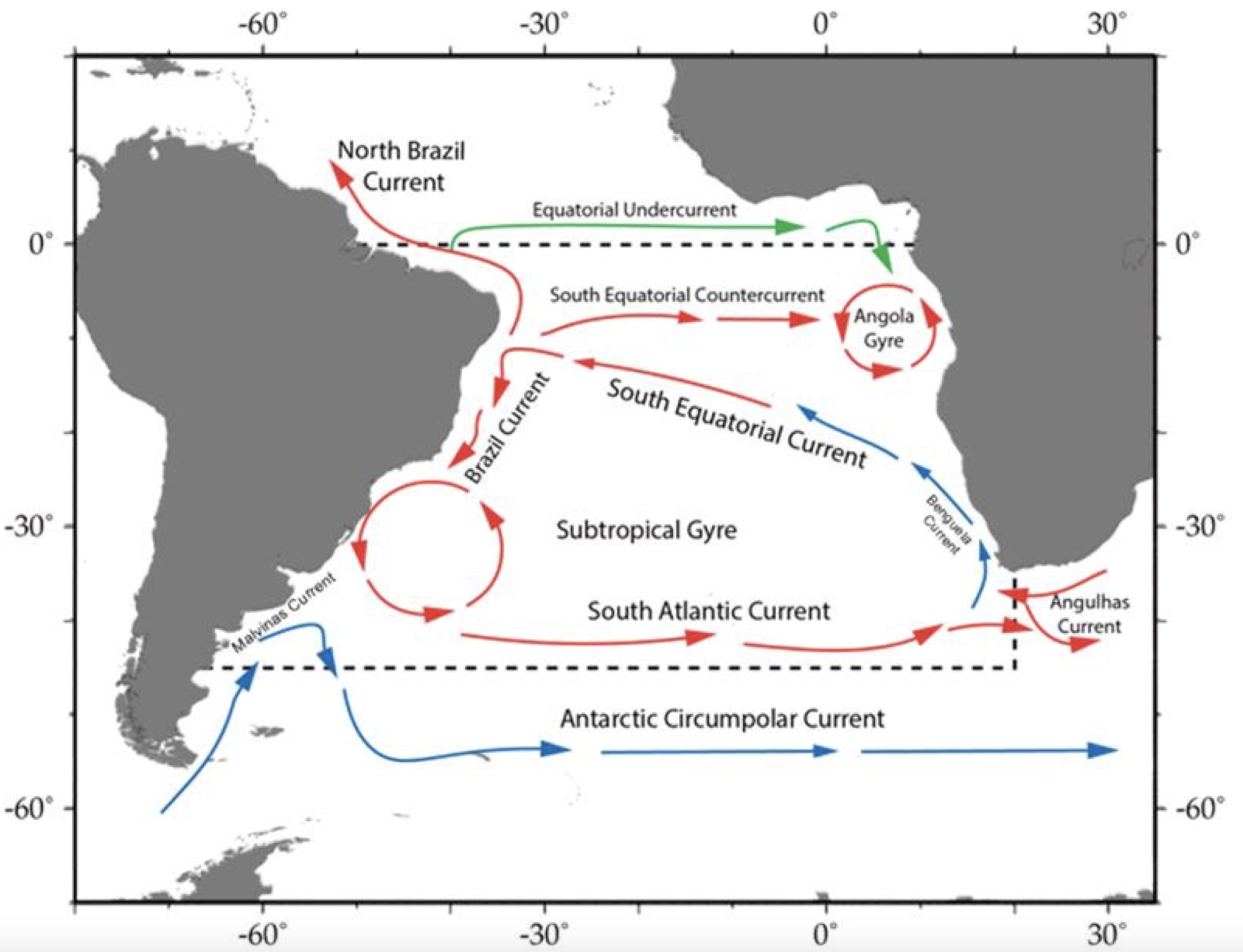Heat, salt and mass transport in the South Atlantic
The South Atlantic is unique for being the only ocean whose heat transport is directed equatorward and for its strategic position that provides a direct connection with the other basins. The South Atlantic receives water from the Antarctic Circumpolar Current, the Pacific Ocean through the Drake passage, from the North Atlantic through the North Atlantic Deep Water, and from the Indian Ocean through the Agulhas leakage. Thus, this ocean is a key piece for the study of the Meridional Overturning circulation and its impacts on the climate.
In my undergraduate thesis, I studied the T-S properties of the South Atlantic Ocean and quantified heat, salt, and mass transports and their temporal variability. I also evaluated how well these transports are represented in three different numerical models by comparing them with in situ geostrophic velocities from CTD/hydrographic sections, Argo floats, and altimetry data. This project was advised by Prof. Antonio Fetter (Federal University of Santa Catarina, Brazil) and co-advised by Prof. Sabrina Speich (Ecole Normale Superieure, France).
 Schematic of the upper branch of the South Atlantic Ocean circulation (Source: Muller-Karger et al., 2017).
Schematic of the upper branch of the South Atlantic Ocean circulation (Source: Muller-Karger et al., 2017).